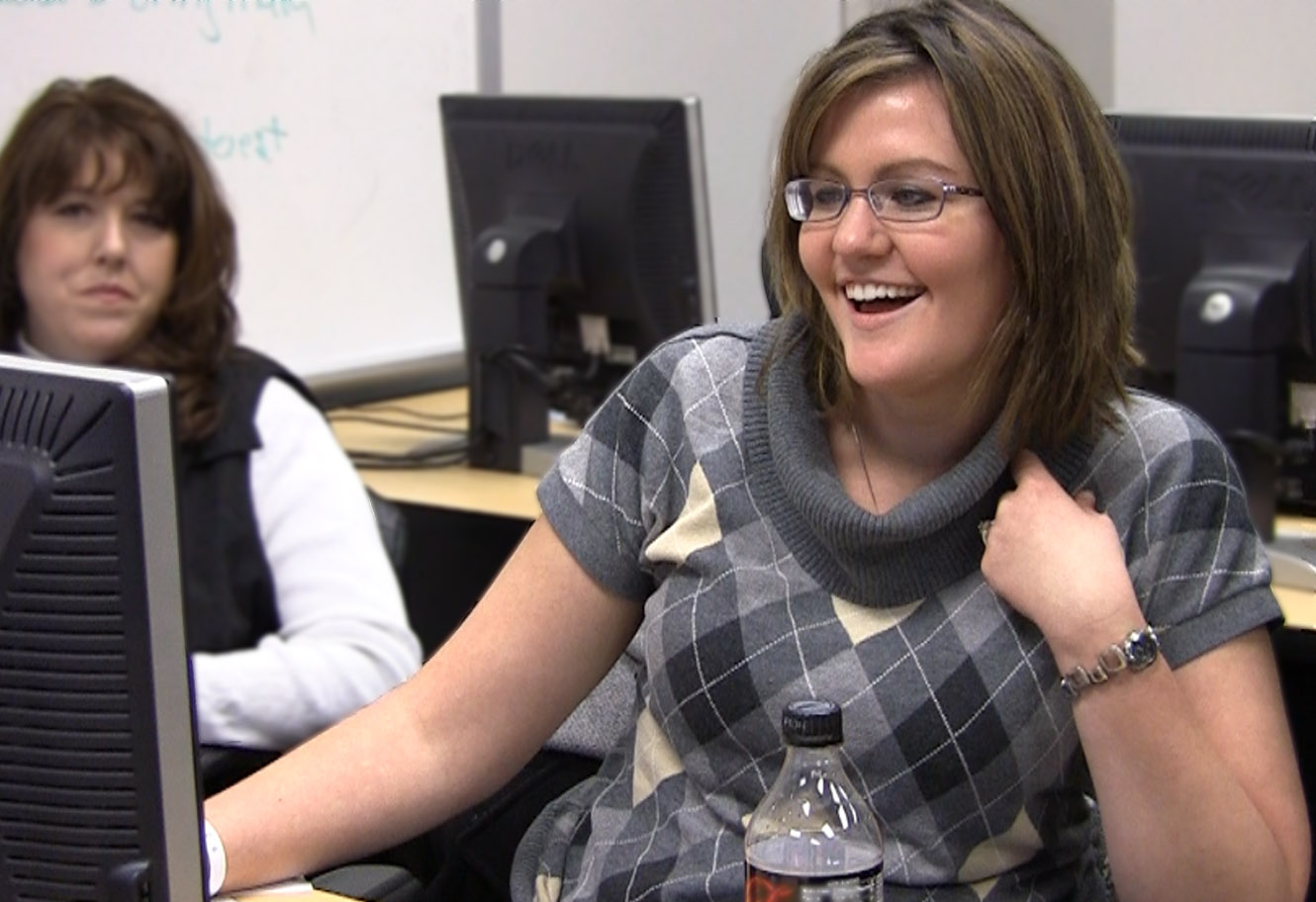Mathematics teachers learn to inspire students by encouraging pattern hunting

Standing at the head of a classroom in a building with humming supercomputers making background music, Reinhard Laubenbacher told a group of grade-school teachers, “The language of patterns is mathematics. Math underlies absolutely everything.”
The teachers were apt pupils. They sat up straighter, peered with more concentration at their computers, and asked piercing questions as Laubenbacher called them “pattern hunters” and promised that patterns would get their kids excited about math.
Laubenbacher is director of education and outreach at the Virginia Bioinformatics Institute and founder of Kids' Tech University, which is earning fame for bringing hundreds of children and their parents to campus for weekend sessions. Less well known is the “teach the teachers” element of the program.
With the teachers, Laubenbacher explored everything from Fibonacci numbers to fractals. Fractals explain the self-similarity of, say, the branching of trees. Fractal formulas inform the beauty of the nautilus shell, the movement of schools of fish, even the appearance of such disparate objects as clouds and crowds.
Miranda Draper, a fourth-grader teacher in Blacksburg, was one of nine teachers looking for ways to re-energize her classroom at Prices Fork Elementary. She said of her students, “They need to be excited about math, and they need to learn that math is everywhere.” Laubenbacher’s lessons were points well taken, she said. “My kids would love the fact that the smallest little detail would affect the big picture.”
Laubenbacher intrigued the teachers by showing them a video clip of a human cell going after a bacterium, successfully chasing and eating the dangerous organism. “That’s an interesting pattern,” he observed. “How does that happen?” he asked, pointing out that mathematics still has many patterns yet to explain.
Clips from the workshop can be seen in this YouTube video.
Laubenbacher has a high regard for elementary schoolteachers. When he was in fourth grade in his native Germany, a teacher's recommendation set him on the path to college. Otherwise he would have been stuck in a vocational track, which in Germany at the time was irrevocable.
“My parents were blue-collar workers, and that was not the social stratum that went on to get a higher education,” he said.
The teachers, creating fractal patterns at their computers, found his excitement infectious. They also learned to teach permutations by encouraging kids to choreograph a series of dances using four separate, but not repeated, movements.
“All of science is about discovering patterns, and we have not even scratched the surface,” Laubenbacher said. “To become a mathematician is to be at the center of understanding how the world works.”
Kids' Tech University is a program developed at the Virginia Bioinformatics Institute at Virginia Tech in partnership with Virginia Cooperative Extension's 4-H Youth Development Program to spark children's interest in science, technology, engineering, and mathematics (STEM) disciplines.
Upcoming workshops for teachers are climate change (Feb. 25 and 26), ecology (March 25 and 26), and health sciences (April 8 and 9). Teachers will learn the concepts and activities and then gain first-hand experience practicing it with children.
Virginia 4-H is paying for the first 10 teachers registered for each workshop – a $30 value. Teachers can find more information on the workshops and register to attend any of the four workshops at http://kidstechuniversity.vbi.vt.edu/for_teachers.php.




